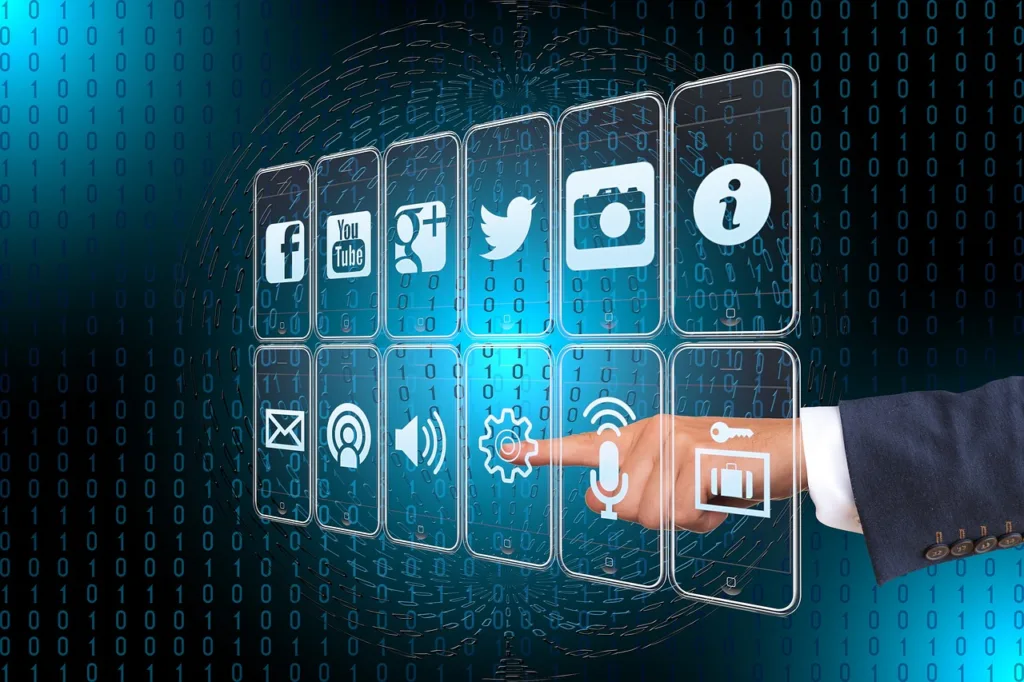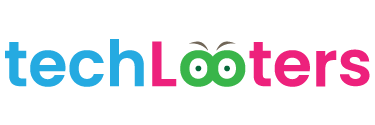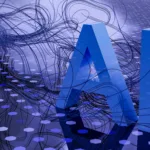Internet of thing jobs market is undergoing a significant transformation with the growing demand for connected devices. The increasing adoption of the Internet of Things (IoT)has created a need for professionals who can develop, manage, and secure these connected devices. As more industries embrace IoT technologies, there is a pressing requirement for skilled workers who can navigate this rapidly evolving landscape.
One of the key drivers behind the demand for connected devices is the desire for efficiency and automation. Companies across various sectors are realizing the potential of IoT in streamlining processes and improving productivity. From manufacturing plants to transportation networks, connected devices offer real-time data collection, remote monitoring, and predictive analytics. As a result, businesses are actively seeking individuals who possess the skills to leverage IoT technologies and harness the power of connected devices to drive innovation and achieve competitive advantage.
Exploring the Role of IoT in Modern Industries
The adoption of Internet of Things (IoT) jobs technology has been steadily growing in modern industries. IoT refers to the network of interconnected devices and sensors that collect and exchange data, enabling communication and automation. In the manufacturing sector, IoT plays a crucial role in enhancing efficiency and productivity. For example, sensors embedded in production equipment can monitor performance and identify maintenance needs, reducing downtime and improving overall manufacturing processes.
Additionally, IoT-enabled devices can enhance supply chain management by providing real-time data on inventory levels and optimizing logistics. This technology is also making its mark in the healthcare industry, where IoT devices are revolutionizing patient monitoring and enabling remote consultations, improving healthcare delivery and patient outcomes. The role of IoT in modern industries extends beyond these examples, and its potential for innovation and growth continues to be explored.

How Internet of things jobs are Becoming Essential for Tech Professionals
As technology continues to advance at a rapid pace, it comes as no surprise that the Internet of things jobs is playing a crucial role in reshaping the market. With the increasing integration of IoT devices in various industries, tech professionals are finding it essential to acquire IoT skills in order to stay competitive in their field. IoT skills encompass a wide range of abilities, including knowledge of sensor technologies, data analytics, cloud computing, and cybersecurity.
Tech professionals with IoT skills have a distinct advantage in today's job market. The ability to design, develop, and manage connected devices opens up a plethora of career opportunities in fields such as manufacturing, healthcare, transportation, and smart cities. Employers are seeking individuals who can harness the power of IoT to streamline operations, enhance efficiency, and drive innovation.
As IoT becomes more ubiquitous, tech professionals without these skills may find themselves at a disadvantage, as companies prioritize candidates who possess the knowledge and expertise to navigate the complexities of the IoT landscape. The demand for professionals with Internet of things jobs is only expected to grow as more industries recognize the potential of IoT technologies, making it an essential area of focus for tech professionals looking to future-proof their careers.
The Impact of Internet of Things jobs on Traditional Roles
One of the most noticeable effects of the Internet of Things jobs on traditional job roles is the increased level of automation in various industries. With the integration of IoT devices and technologies, tasks that were once performed manually can now be automated, leading to a shift in job responsibilities. For example, in manufacturing plants, IoT-enabled machines and sensors can minimize the need for human intervention, resulting in reduced labor costs and improved efficiency. As a result, traditional roles such as assembly line workers may need to adapt by acquiring new skills or transitioning to other positions that require more advanced technological knowledge.
Additionally, the IoT has brought about a surge in the demand for professionals with expertise in data analysis and security. As more devices connect to the internet, vast amounts of data are being generated, requiring skilled individuals who can analyze and derive meaningful insights from this data. Companies are seeking data analysts, data scientists, and statisticians to make sense of the vast troves of information that IoT devices collect. Furthermore, with increased connectivity comes the need for robust cybersecurity measures to protect sensitive data from unauthorized access. As a result, the demand for experts in IoT cybersecurity is on the rise, creating new job opportunities in a rapidly evolving field.
Emerging Career Opportunities in IoT Development and Engineering
The field of IoT development and engineering is experiencing rapid growth, creating a plethora of emerging career opportunities. As the demand for connected devices continues to rise across various industries, professionals with skills in IoT development and engineering are becoming increasingly essential. These professionals are responsible for designing, building, and maintaining the infrastructure necessary for the functioning of IoT devices and systems.
Internet of things jobs in development and engineering careers require a strong understanding of hardware and software integration, as well as proficiency in coding and programming languages. Professionals in this field must possess the ability to develop and implement innovative solutions to complex problems, as well as troubleshoot and debug IoT systems.
With the continuous advancements in IoT technology, there is a growing need for individuals who can adapt to evolving trends and maintain the security and efficiency of IoT networks. As a result, the demand for skilled IoT developers and engineers is expected to only increase in the coming years, making it a promising career path for tech enthusiasts.
The Importance of Data Analytics in IoT Jobs
Data analytics plays a crucial role in the field of Internet of things jobs. As connected devices generate massive amounts of data, professionals with strong data analytics skills are in high demand. By analyzing this data, organizations can gain valuable insights that drive strategic decision-making and improve operational efficiency. Data analytics in IoT jobs involves extracting, cleaning, and transforming data, as well as applying statistical models and algorithms to derive meaningful conclusions. With the ability to identify patterns, trends, and correlations, data analytics empowers businesses to optimize their IoT systems and enhance overall performance.
Moreover, data analytics also helps in identifying potential security threats within IoT networks. By monitoring and analyzing data, professionals can detect anomalies and suspicious activities, enabling prompt action to mitigate risks. Additionally, data analytics contributes to enhancing the user experience of IoT devices by tracking user behavior and preferences.
By understanding user patterns, organizations can personalize their services, recommend relevant products, and provide a more seamless and tailored experience. As Internet of things jobs continues to expand, the importance of data analytics in Internet of things jobs will only continue to grow, making it a critical skill set for professionals in the field.

Security Challenges and the Need for IoT Cybersecurity Experts
With the rapid growth of the Internet of Things (IoT), the need for Internet of things jobs as cybersecurity experts has become more imperative than ever before. As the number of connected devices continues to rise, so does the potential for security breaches and vulnerabilities. The interconnected nature of IoT devices makes them susceptible to cyberattacks, posing significant challenges for organizations.
One of the main security challenges in Internet of things jobs is the lack of standardization in terms of security protocols and practices. Unlike traditional computing systems, IoT devices often have limited resources and capabilities, making it difficult to implement robust security measures. Additionally, the diverse range of IoT devices and platforms further complicates the security landscape, as each device may have its own unique vulnerabilities.
In order to ensure the security and integrity of IoT systems, organizations are increasingly seeking the expertise of Internet of things jobs as cybersecurity professionals. These experts possess the knowledge and skills necessary to identify and mitigate security risks in IoT devices and networks. They are well-versed in the latest security protocols and technologies, and they can help develop and implement effective cybersecurity strategies.
As the IoT continues to evolve and expand, the demand for cybersecurity experts with specialized knowledge in this field is expected to grow. The role of IoT cybersecurity professionals is not limited to preventing unauthorized access and protecting data privacy. They also play a vital role in safeguarding critical infrastructure and ensuring the resilience and reliability of IoT systems. In an increasingly connected world, the expertise of these professionals is crucial to the security and safety of individuals, businesses, and society as a whole.
Internet of things jobs in Healthcare: Revolutionizing the Medical Field
In today's rapidly evolving healthcare landscape, the Internet of Things (IoT) is revolutionizing the medical field, offering new opportunities and challenges for professionals in the industry. The integration of IoT technology in healthcare has paved the way for a wide range of IoT jobs that are transforming the delivery of medical services and improving patient outcomes.
One of the key areas where IoT is making a significant impact is in remote patient monitoring. With IoT-enabled medical devices, healthcare professionals can remotely monitor patients' vital signs and collect real-time data, enabling early detection of health issues and timely intervention.
This has not only improved the quality of care but has also allowed healthcare providers to optimize their resources and reduce hospital readmissions. As a result, there is a growing demand for IoT professionals who can design, develop, and manage these connected healthcare solutions, ensuring their seamless integration with existing medical systems and compliance with privacy and security regulations.
The Role of IoT in Smart Cities and Urban Planning Careers
With the rapid advancements in technology, the Internet of things jobs has emerged as a crucial tool in the development of smart cities and the field of urban planning. IoT has the potential to revolutionize urban areas by creating a network of connected devices and sensors that can collect vast amounts of data in real-time. This data can be utilized to make informed decisions about urban infrastructure, transportation systems, and public services.
One of the key roles of IoT in smart cities and urban planning is improving efficiency and sustainability. By integrating IoT devices into various aspects of urban life, cities can monitor energy consumption, optimize transportation routes, and manage waste more effectively.
For instance, smart grids can dynamically adjust energy distribution based on demand, reducing energy waste and costs. Similarly, IoT-enabled sensors can help detect and address issues related to air quality, water management, and waste management, ensuring a healthier and cleaner living environment for residents.
In conclusion, the use of IoT in smart cities and urban planning offers tremendous potential for improving the quality of life for citizens. By leveraging the power of connected devices and real-time data analysis, cities can become more efficient, sustainable, and livable.
However, as with any technological advancement, there are challenges that need to be addressed, such as data privacy and security concerns. As the field of IoT continues to evolve, so do the career opportunities in smart cities and urban planning, making it an exciting and promising domain for aspiring professionals.
The Future of IoT Jobs: Predictions and Trends
The future of IoT jobs is expected to witness significant growth and expansion, driven by rapid advancements in technology and increasing adoption of connected devices. As more industries and businesses recognize the benefits of IoT, the demand for professionals with expertise in this field is projected to rise. According to industry experts, one of the key trends that will shape IoT jobs in the future is the integration of artificial intelligence (AI) and machine learning (ML) with IoT systems. These technologies will enable IoT devices to not only collect and transmit data, but also analyze and interpret it in real-time, leading to more efficient and proactive decision-making.
Another trend that is expected to emerge in the future IoT job market is the focus on cybersecurity. With the proliferation of IoT devices, the need to ensure the security and privacy of data transmitted through these devices becomes paramount. As a result, there will be an increased demand for professionals who specialize in IoT cybersecurity, helping organizations safeguard their networks and systems from potential threats.
Additionally, experts predict that IoT jobs will become more specialized, with professionals honing their skills in specific areas such as data analytics, cloud computing, and sensor technology to meet the unique requirements of IoT deployments in various sectors. This specialization will not only enhance the capabilities of IoT systems but also open up new career opportunities for individuals with niche skillsets.
FAQ'S
What is IoT?
IoT stands for Internet of Things. It refers to the network of interconnected physical devices, vehicles, appliances, and other objects that are embedded with sensors, software, and connectivity, enabling them to collect and exchange data.
How is IoT transforming industries?
IoT is revolutionizing industries by enabling businesses to gather real-time data, automate processes, improve efficiency, and enhance decision-making. It has applications in various sectors such as manufacturing, healthcare, transportation, agriculture, and more.
Why are IoT skills important for tech professionals?
IoT skills are becoming essential for tech professionals because of the increasing demand for connected devices and smart solutions. Proficiency in IoT technologies allows professionals to develop, deploy, and maintain IoT systems, creating new career opportunities and staying relevant in the evolving job market.
What impact does IoT have on traditional job roles?
IoT is reshaping traditional job roles by introducing new requirements and skill sets. It is creating a need for professionals who can integrate IoT technologies into existing systems, analyze IoT-generated data, ensure cybersecurity, and adapt to the changing landscape of connected devices.
What are the emerging career opportunities in IoT development and engineering?
The field of IoT development and engineering offers various exciting career opportunities. Roles such as IoT architects, software developers, network engineers, data analysts, and cybersecurity experts are in high demand as companies seek professionals who can design, implement, and manage IoT solutions.
Why is data analytics important in IoT jobs?
Data analytics is vital in IoT jobs because it involves collecting and analyzing large volumes of data generated by connected devices. By extracting meaningful insights from this data, businesses can make informed decisions, optimize processes, improve customer experiences, and drive innovation.
What are the security challenges in IoT and the need for IoT cybersecurity experts?
IoT devices are vulnerable to cyber threats, making security a critical concern. The interconnected nature of IoT networks increases the attack surface, making them potential targets for hackers. IoT cybersecurity experts are needed to ensure the protection of sensitive data, secure network connections, and mitigate potential risks.
How is IoT revolutionizing the healthcare field?
IoT is transforming healthcare by enabling remote patient monitoring, telemedicine, personalized medicine, and improved operational efficiency. Connected devices and sensors allow healthcare professionals to track patient data in real-time, enhance diagnosis and treatment, reduce hospital readmissions, and ultimately improve patient outcomes.
What role does IoT play in smart cities and urban planning careers?
IoT plays a crucial role in smart cities and urban planning. It facilitates the integration of various systems such as transportation, energy, waste management, and public safety, creating more sustainable and efficient cities. Professionals in urban planning can leverage IoT technologies to optimize resource allocation, improve infrastructure, and enhance the quality of life for citizens.
What are the predictions and trends for the future of IoT jobs?
The future of IoT jobs looks promising, with continued growth and innovation in the field. Predictions include increased demand for IoT professionals, advancements in edge computing and AI, the emergence of specialized IoT roles, and a focus on developing robust cybersecurity measures to address potential risks.




